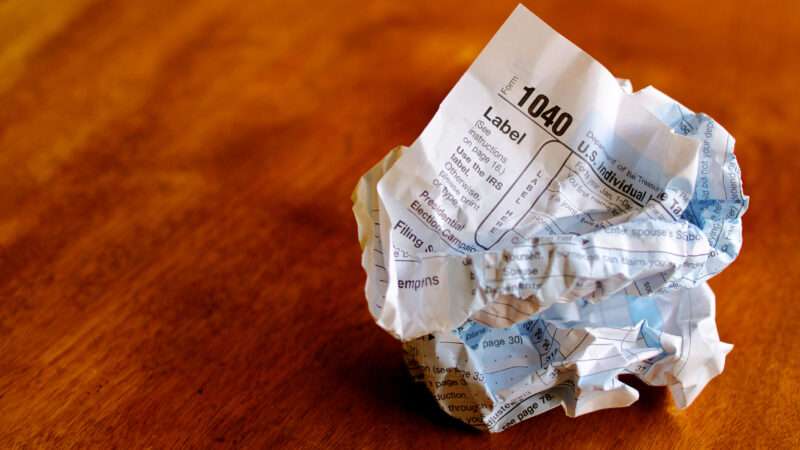
As many Americans who waited until the last minute will likely rediscover this weekend, filing federal taxes is a complicated and frustrating task. No matter how much care is taken, mistakes happen—and fairly often.
During the 2021 tax filing season, for example, the IRS "suspended and reviewed 35 million returns with errors," according to a new report from the Government Accountability Office (GAO), which annually reviews the IRS' performance and makes recommendations for improvement.
Those errors can be the result of taxpayers failing to include a necessary form or complete information, though they can also be the results of mistakes by IRS employees, the GAO reported. In either case, they cause long delays in getting refunds to taxpayers and are a costly strain on the IRS itself—during the 2021 filing year, IRS employees worked 10 hours of overtime per week for several months to deal with a backlog of incorrect tax returns.
There was a significant increase in the number of errors found by the IRS in 2021, which the GAO attributed to taxpayers being confused about how to report aid received during the COVID-19 pandemic, but more than 15 million returns have been flagged for errors in other recent years.
This is a persistent issue for the IRS, but the GAO's audit found that the tax agency "does not have a process to identify and analyze their underlying causes. This limits IRS's ability to reduce instances of recurring errors and anticipate potential future problems."
Until the IRS has such a system in place, the GAO warned, "taxpayers will continue to experience delayed returns and refunds," and the "IRS risks creating a perpetual backlog of work that will be difficult to address before the start of the next filing season."
The IRS' response: nah.
In a written response to the GAO, IRS Deputy Commissioner for Services and Enforcement Douglas O'Donnell rejected the recommendation to study frequently occurring tax errors because the agency already has a "robust" system in place to track and identify errors. O'Donnell added that further study of this problem would be redundant.
In its own response, the GAO disputed the notion that the IRS' current system is robust—and, based on the numbers, it's also clearly not very effective. The IRS provided no evidence, the GAO concluded, that its existing processes "have contributed to lower error rates for certain errors."
If only the IRS had just gotten $80 billion in new funding that could be used to better understand why so many taxpayers struggle to file without making mistakes.
Instead, much of that new funding will beef up the agency's auditing powers. In other words: Rather than helping taxpayers make fewer mistakes when they file, the IRS will have an opportunity to turn innocuous mistakes into much bigger headaches.
"Congress should override the IRS' disagreement with this key recommendation, and require a multi-year study on the main causes for taxpayer errors while filing," said Andrew Lautz, director of federal policy for the National Taxpayers Union, a free market group that advocates for lower, fairer taxes. "More importantly, Congress should carefully consider the results of such a study, and then even more carefully consider expanding the agency's authority to make corrections for certain common errors on a case-by-case basis—so long as taxpayers have reasonable courses to appeal or protest an IRS correction made on their behalf."
While it's at it, Congress should also think about reducing the overall complexity of the tax code so that Americans can file their taxes without needing the costly assistance of accountants or services like H&R Block.
Whether any further action is taken or not, the IRS' refusal to even consider further reviews of common mistakes provides a tidy illustration of a key difference between government and private sector business. If a business's customers are confused by a poorly designed website or an overly complicated order form, they might spend their money elsewhere. A business has a clear incentive to reduce its clients' mistakes, which might be costly and time-consuming to fix even if they don't drive customers away.
The IRS has none of those incentives, and its customer service will always lag because, well, none of us are really customers.
The post Auditors Asked the IRS To Figure Out Why So Many Taxpayers Make Mistakes. The IRS Said 'No.' appeared first on Reason.com.







